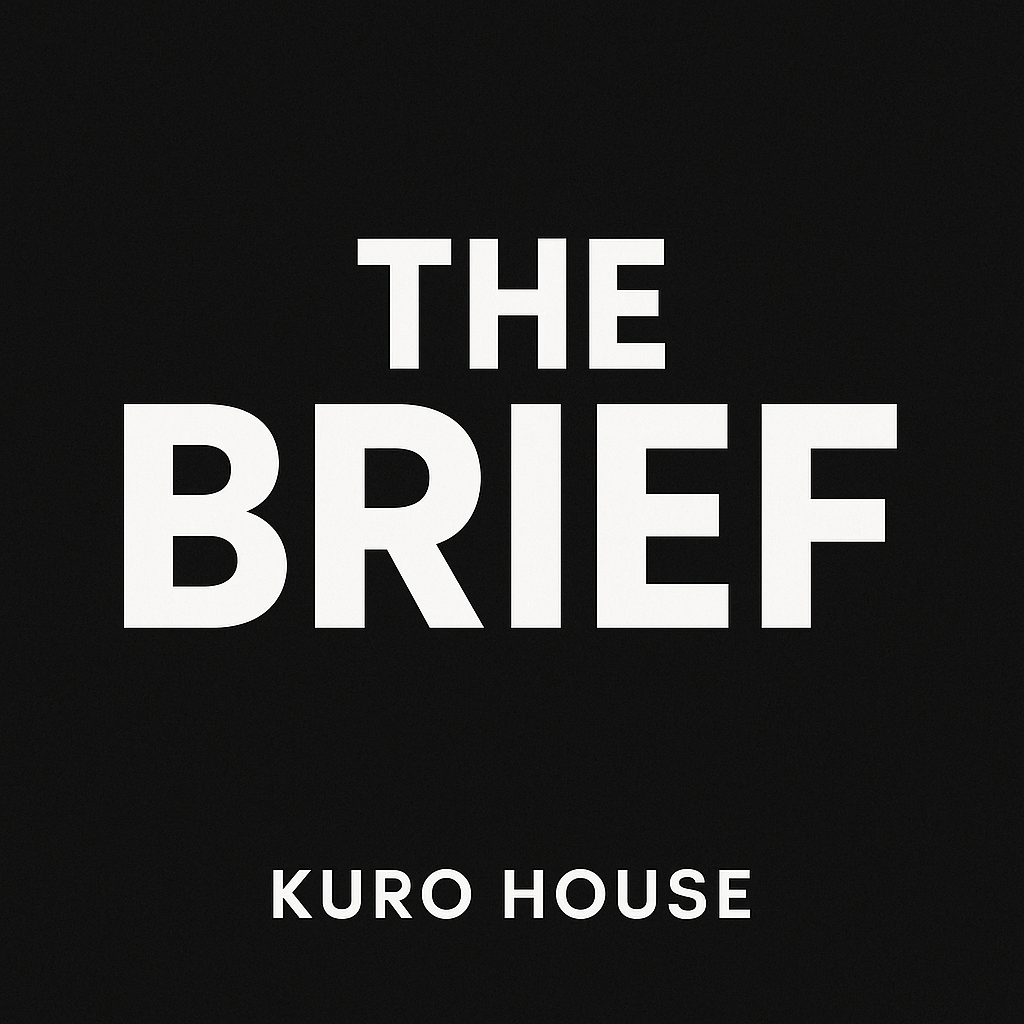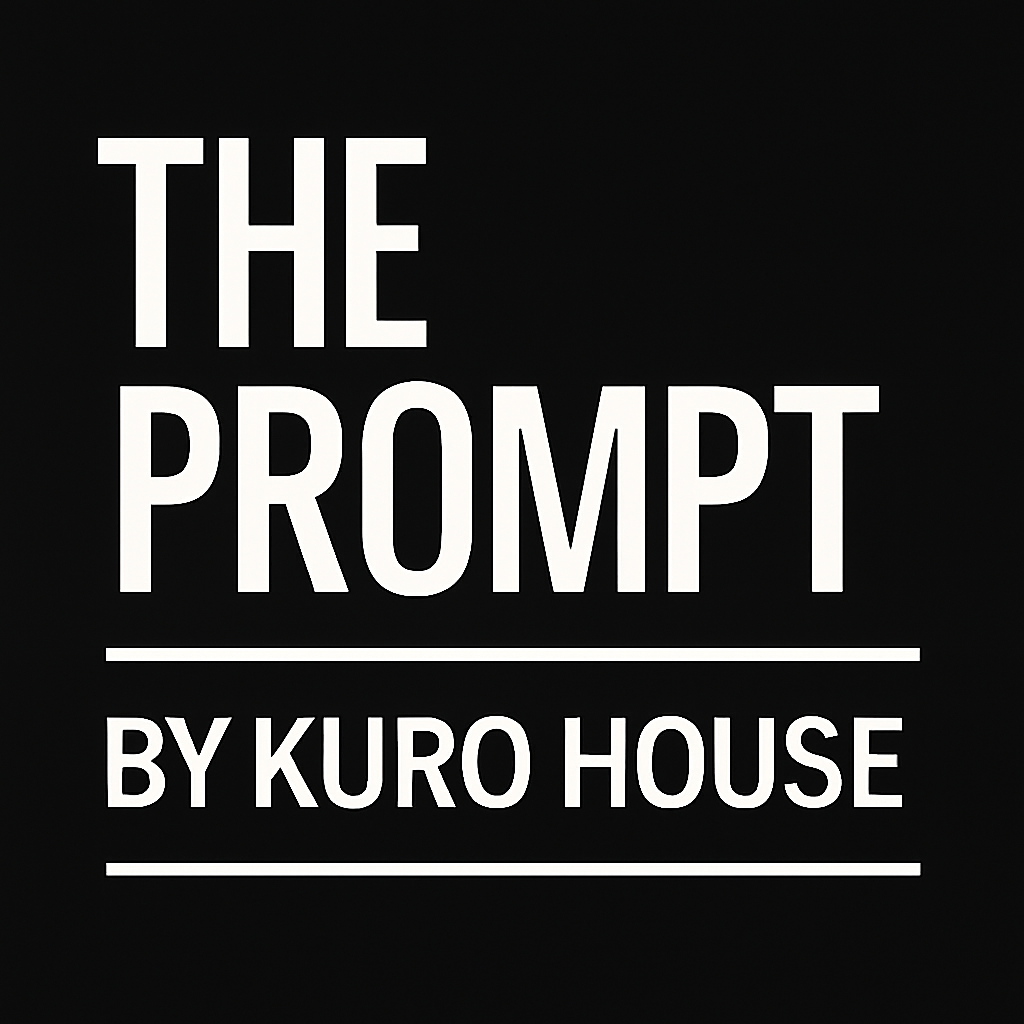Listen To The Show
Transcript
Welcome back to The Brief by Kuro House, your daily dose of the sharpest stories in marketing, media, and brand innovation. Today, we’re digging into the big moves shaping the future of agencies, the next phase of legacy CPG brands, a brewing ice cream drama that’s more than just a scoop, Amazon’s latest sports sponsorship play, and whether Meta’s new AI-powered feed could fill the TikTok void. Let’s get you up to speed.
Let’s start with the seismic shift in the agency world, reported by Digiday. French holding company Havas and Horizon Media, the largest independent media agency in the U.S., are joining forces in a joint venture that will command a staggering $20 billion in annual billings. This isn’t just another merger—it’s a calculated move to compete with the likes of Omnicom and Interpublic, who are themselves on the verge of creating the world’s largest advertising group. The joint venture, called Horizon Global, aims to be the go-to for U.S.-based global marketers who want scale without the bureaucracy of the big holding companies. Both Havas and Horizon will contribute their proprietary AI platforms—Horizon’s Blu and Havas’ Converged—creating a combined platform dubbed BluConverged for U.S. clients. Leadership will be split, with Bob Lord as interim CEO and Renata Spackova as global COO, and both companies holding a 50% stake. Staff will be drawn from both agencies on an account-by-account basis, aiming for a seamless client experience. However, the venture faces skepticism from industry consultants who recall past joint ventures, like Local Planet, that failed due to bloated management and lack of integration. The real test will be whether Horizon Global can operate as a truly unified entity, or if clients will feel like they’re managing two separate agencies. And with Dentsu’s international business up for sale, the competitive landscape is more fluid than ever. This move could be a game-changer for mid-sized global clients—if Horizon and Havas can deliver on the promise of seamless collaboration.
From agencies to consumer packaged goods, Adweek brings us an inside look at how Suave Brands is rebuilding legacy CPG for a digital-first future. Noah Knoblauch, head of ecommerce and retail media at Suave Brands Company, shares how he started from scratch after Suave’s spin-off from Unilever and Haleon. Instead of jumping straight into splashy content or storytelling, Knoblauch focused on the fundamentals: profitability, assortment, packaging, and pricing. Only once the operational foundation was solid did he move into content and retail media investments. What’s interesting is his transparency about what actually drives results in a private equity-backed environment—every investment must show a clear ROI, especially when it comes to retail media. Strategic bundling and keyword-level retail media planning were key tactics that didn’t just drive clicks online, but also increased in-store velocity and strengthened retailer partnerships. Knoblauch also discussed team structure and omnichannel planning, emphasizing the need for mass brands to stay relevant in emerging social commerce platforms. His advice for marketers considering a move to a private equity-backed business? Understand that profitability comes first, and be ready to thrive in a model where every dollar is scrutinized for impact.
Now, let’s talk about a marketing drama that’s as rich as a pint of Cherry Garcia. Adweek reports on the tension between Ben & Jerry’s founders and the soon-to-be public Magnum Ice Cream Company, spun out from Unilever. Ben & Jerry’s is one of the crown jewels in Magnum’s portfolio, but founders Ben Cohen and Jerry Greenfield are deeply unhappy with the direction of the brand under corporate ownership. Jerry Greenfield has announced he’s leaving, citing broken promises from Unilever about maintaining the brand’s autonomy and social mission. The rift reached its peak in 2021 when Ben & Jerry’s pulled out of the West Bank, and Unilever countered by selling the brand’s rights to a local distributor, prompting a lawsuit. Now, with Magnum Ice Cream Company touting Ben & Jerry’s as a star asset ahead of its IPO, the founders are making noise about their exclusion from brand decisions. The article draws parallels to other founder-brand fallouts, from Steve Jobs at Apple to Burt Schavitz at Burt’s Bees, emphasizing that founders often possess intrinsic insights and credibility that can’t be replicated by corporate management. Ignoring them, especially at a critical moment like an IPO, is a risky strategy. The lesson? Founders may be difficult, but their ongoing involvement can be invaluable to a brand’s authenticity and long-term success.
Switching gears, Adweek also highlights Amazon’s bold new sponsorship move in sports streaming. Amazon has signed FanDuel as its first major sponsor for NBA and WNBA coverage on Prime Video, making FanDuel the official odds provider in a multi-year deal. This partnership is designed to enhance the viewing experience with new bet tracking and “Odds View” features for those who opt in. FanDuel will provide dynamic betting content during broadcasts, and viewers will be able to see their bets displayed and updated live on screen. Former NBA star Blake Griffin will serve as an analyst for NBA on Prime and as a FanDuel ambassador, appearing in creative campaigns, on-air integrations, social media, and live events. Amazon is going all-in on integrating sponsors into the content, offering premium in-studio branding, virtual executions, in-game placements, and even presenting sponsorships of highlights and replays. The move is part of a broader strategy to create unique, meaningful opportunities for brands to connect with engaged sports audiences, and to leverage Amazon’s own studio for creative integrations. With the NBA Black Friday game and other high-profile events on the horizon, Amazon is positioning itself as a new kind of sports broadcaster—one where betting, content, and brand integration are deeply intertwined.
Finally, let’s look to the future of social video. Digiday’s Future of TV Briefing explores whether Meta’s new AI-generated content feed, called Vibes, could become the next destination for TikTok users—especially as TikTok’s U.S. operations face regulatory upheaval. Vibes is an AI-generated feed that delivers an endless stream of content, with none of the ambiguity about what’s real and what’s AI. The article argues that while Vibes isn’t a one-for-one replacement for TikTok’s human-centered creativity, it could fill the “doomscrolling” void—a term for the addictive, endless consumption of empty entertainment. With Vibes, users know up front that everything is fake, which removes the constant mental filter of “is this AI?” that now accompanies social media browsing. The content on Vibes so far is more aesthetic than engaging—think filtered photos and calming visuals rather than viral dances or hot takes—but the potential is there for AI to create highly entertaining, addictive content. The article also touches on broader trends, like the rise of creator-owned companies, the push for generative AI in TV ad creation, and the evolving split between ByteDance and TikTok U.S. operations. The big takeaway: as AI-generated content becomes more mainstream, platforms like Vibes could redefine what it means to consume social video, especially for users who just want to scroll and zone out.
That’s a wrap for today’s Brief. Whether it’s agencies teaming up to take on the giants, legacy brands reinventing themselves, founders fighting for their vision, new frontiers in sports sponsorship, or the rise of AI-powered doomscrolling, it’s clear that marketing is in a period of rapid, sometimes messy, transformation. Stay sharp, stay curious, and we’ll see you tomorrow for another round of insights and stories that matter.

